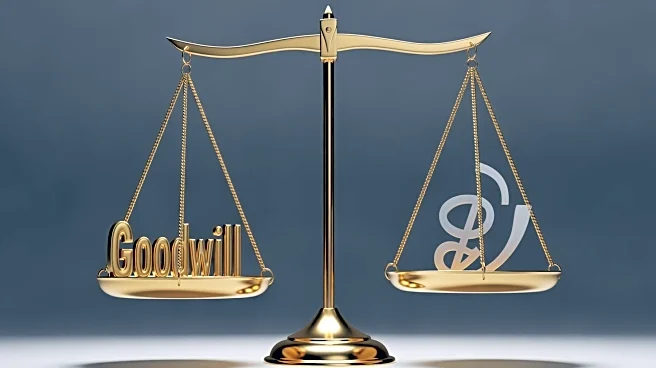What's Happening?
The Delhi High Court has dismissed appeals by the Income Tax Department against the law firm Remfry & Sagar, allowing the firm to treat license fees paid for acquiring its founder's goodwill as a deductible
business expense under Section 37 of the Income Tax Act. The decision was made by a division bench comprising Justices V. Kameswar Rao and Vinod Kumar, who upheld a previous order by the ITAT. The case involved Dr. V. Sagar, who acquired the assets and goodwill of 'Remfry & Sons' from a British immigrant, forming 'Remfry and Sagar'. The goodwill was later gifted to Remfry & Sagar Consultants Private Limited (RSCPL), held by Dr. Sagar's children. The firm executed a 'License of the Use of Goodwill' with RSCPL on a revenue-sharing basis, seeking deduction under Section 37. The Assessing Officer had disallowed the deduction, claiming it was a ruse to divert funds for personal benefit and avoid tax. However, the High Court found no evidence of tax avoidance and dismissed the appeals.
Why It's Important?
This ruling is significant as it sets a precedent for how goodwill and license fees can be treated under tax law, potentially impacting other businesses and law firms with similar arrangements. By allowing the deduction, the court has reinforced the legitimacy of using goodwill as a business expense, which could encourage firms to invest in acquiring and utilizing goodwill without fear of tax penalties. The decision also highlights the judiciary's role in interpreting tax laws and ensuring that legitimate business practices are not unfairly penalized. This could lead to increased confidence among businesses in structuring their financial arrangements, knowing that the courts may support them against aggressive tax assessments.
What's Next?
The decision may prompt the Income Tax Department to review its approach to similar cases, potentially leading to changes in how goodwill and license fees are assessed for tax purposes. Businesses might also reconsider their strategies for acquiring and utilizing goodwill, knowing that the courts may uphold their deductions. Additionally, this case could influence future legal interpretations of tax laws related to business expenses, encouraging firms to seek judicial recourse when faced with unfavorable tax assessments.
Beyond the Headlines
The ruling touches on broader themes of tax law interpretation and the balance between government revenue collection and business incentives. It underscores the importance of judicial oversight in ensuring fair application of tax laws, which can have long-term implications for business practices and economic growth. The case also raises questions about the ethical dimensions of tax planning and the extent to which businesses can structure transactions to minimize tax liabilities without crossing into avoidance.









